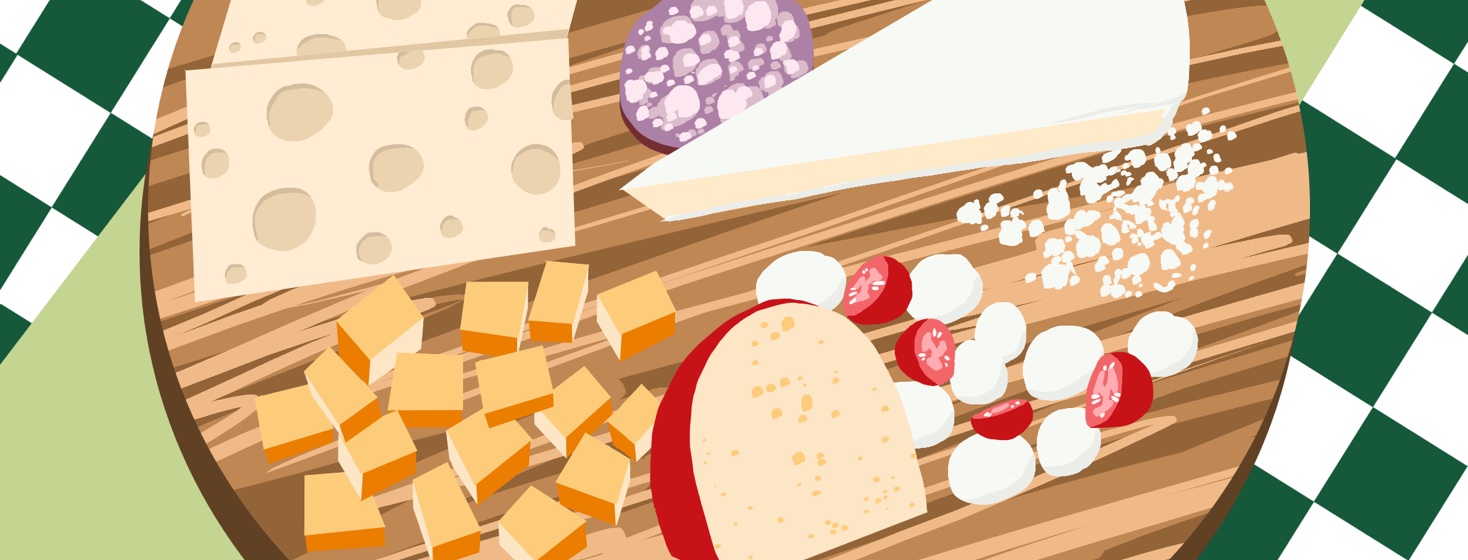What Cheeses Are Low FODMAP?
Whether you have just started eliminating FODMAPs or you are following a long-term modified low FODMAP diet, you know this lifestyle change can feel very restrictive!
As a dietitian specializing in digestive disorders and the low FODMAP diet, I aim to help people gain as many foods back as they possibly can. A common misconception I see in practice is that the low FODMAP diet means a dairy-free diet. This is not the case! In fact, many dairy-based foods are actually very low in lactose, which is one fermentable carbohydrate we are reducing during FODMAP eliminations.1
Many of my patients are thrilled to learn they actually don’t have to give up one of their favorite dairy foods – cheese! However, not all cheeses are created equal when it comes to lactose-content. Today we will review which cheeses are FODMAP friendly, which to avoid, and how to identify the difference in the dairy aisle.
What is lactose?
Lactose is a disaccharide. This means it is a carbohydrate consisting of 2 smaller sugar molecules. It falls under the “D” category in the FODMAP acronym. It is the sugar found in milk and other dairy products.1
Many people with IBS struggle to break down lactose in the gut, causing it to sit in the gut longer than normal and ferment. This leads to a buildup of gas and often bloating, abdominal pain, and changes in bowel patterns. If you have been tested for lactose intolerance by your doctor and are NOT lactose intolerant, you do NOT need to avoid lactose on the low FODMAP diet.1
Lactose – how much is too much?
When eliminating FODMAPs, we want to remove as much lactose as possible but don’t generally need to be completely lactose free. According to Monash University, individuals sensitive to lactose can tolerate approximately 12-15 grams of lactose per day in most cases. This is equivalent to about 1 cup of milk!1
However, most people with IBS or lactose-intolerance do better when consuming this amount of lactose in small amounts throughout the day instead of gulping down their entire daily amount in one go.1
As a dietitian, I encourage patients to have low-lactose dairy foods regularly because they provide lots of important nutrients like calcium, vitamin D, protein, and phosphorus.
Lactose in cheese
In cheese specifically, lactose content can vary quite a bit. This variance generally depends on how the cheese is manufactured, processed and aged. Aged and ripened cheeses have much less lactose, as much of the lactose is drained off during production and almost all of the remaining lactose is then converted to lactic acid as the cheese ripens.1
In general, cheese is considered low FODMAP when it contains less than 1 gram of lactose per serving. Moderate lactose content in cheese is approximately less than 4 grams of lactose per serving. One thing to note is that serving sizes do vary depending on what is considered a “normal” amount of each specific cheese. Most serving sizes are between 1 and 2 ounces of cheese.1
One simple way to choose a low FODMAP cheese while grocery shopping is to look at the sugar content on the nutrition facts panel. With cheese, there is no added sugar so the sugar listed is representative of the lactose that is naturally found in the cheese itself. If this cheese has less than 1 gram of sugar, it is considered low FODMAP!
Low FODMAP cheeses
- Cheddar
- Parmesan
- Colby
- Camembert
- Brie
- Swiss
- Havarti
- Mozzarella
- Feta
Moderate FODMAP cheeses:
- Cream cheese
- Ricotta
- Quark
- Haloumi
The ‘cheesy’ takeaway
If you are following a low FODMAP diet, you can still eat cheese unless you have a separate dairy sensitivity or allergy.
My patients find it quite liberating to be able to include cheese in their diets, as it adds flavor, excitement, and substance to low FODMAP meals and snacks. Additionally, including low-lactose dairy like cheese is a great way to consume key nutrients for bone health and other important bodily functions!1
Finally, if you feel you need further help identifying food triggers like lactose or other FODMAP foods, I highly recommend that you work with a dietitian or doctor who specializes in gut health.

Join the conversation